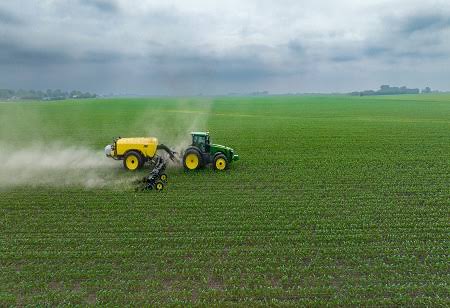With the growing popularity of sustainable agriculture, especially organic farming, an increasing number of large-scale farmers and food producers are thinking about incorporating organic fertilizers into their operations. These products can improve soil health, decrease reliance on synthetic chemicals, and help to create a more sustainable environment. In this article we are going to discuss about the organic Fertilizer along with the benefits of using the organic fertilizer like nature safe fertilizer. You also get organic fertilizer in this blog.Thus read the article from top to bottom to get all the details about them.
What Are Organic Fertilizers?
Organic, or natural, fertilizers are derived from natural sources and include at least one nutrient that is necessary for plants to grow. Compost, manure, and rock powders are a few types of natural plant food. Soil bacteria must first convert the nutrients in organic fertilizer from an inaccessible form to a bioavailable one before plants can absorb them. Because organic matter is added, the release of nutrients occurs more slowly than with inorganic goods, and the quality of the soil is improved.
Advantages Of Organic Fertilizers
There are multiple number of advantage of using the Organic fertilizer into your crops, list of few benefits are given below:-
- Improved soil quality: Adding organic compounds to soil increases its water-holding capacity and lightens the soil structure.
- Healthy soil ecosystem: Organic farming fertilizers contain soil organic carbon, which promotes beneficial bacteria that break down and cycle nutrients.
- Slowly and steadily supplying nutrients: The slow release of natural plant feed allows nutrients to get to the crops as they grow, producing a long-lasting effect.
- Less chance of overfertilization: Unlike synthetic fertilizers, which frequently overfeed crops and run off, natural fertilizers are used by plants slowly and infrequently.
- Prioritizing sustainability: Unlike synthetic fertilizers, which primarily rely on fossil fuels and contribute to environmental pollution, organic fertilizers usually give new life to natural materials that would otherwise end up in the trash.
Types Of Organic Fertilizers
The source from which organic fertilizer is obtained serves as the foundation for categorization. Natural occurring minerals, livestock husbandry and slaughterhouse wastes, agricultural leftovers, and horticultural byproducts are the main sources of raw materials for natural plant feed. This leads to the distinction of three types of organic fertilizers: plant-based, animal-based, and mineral-based, which are covered in the sections that follow.
- Animal-Based Organic Fertilizers
The primary sources of animal-based natural fertilizers are manure and byproducts from slaughterhouses. These add more nitrogen to the soil than plant-based products do. For this reason, they are ideal for producing green foods like maize. Because of its nutritional composition, which is well-balanced, cow dung has become the preferred natural plant feed.
- Plant-Based Organic Fertilizers
Plant-based fertilizers, which are frequently made from agricultural waste, may enable farm enterprises to become more self-sufficient. These fertilizing solutions provide crops with several essential nutrients since they break down really fast. nature safe fertilizer treatments might be a suitable option if your field has poor drainage and soil moisture retention since they promote improvements in soil structure.
- Mineral-Based Organic Fertilizers
Mineral-based fertilizers like nature safe ferticlizer are composed of minerals that are naturally occurring. A significant advantage of mineral-based plant feed is its slow-release nature, which ensures a steady delivery of nutrients over an extended period of time. In addition to increasing plant absorption, this lessens the possibility of nutrient leakage. In addition, organic fertilizers derived from natural minerals improve soil aeration and water retention while promoting the development of microorganisms that are good to the soil.






